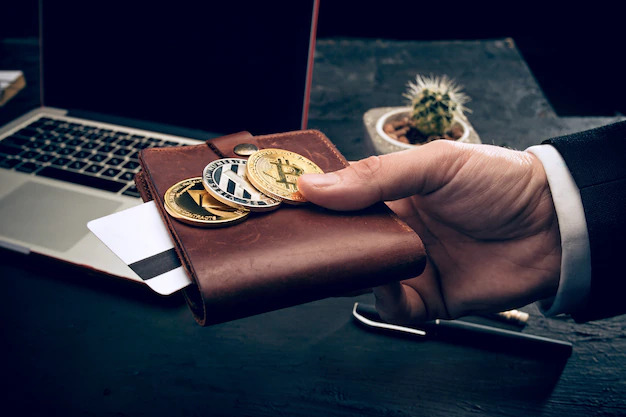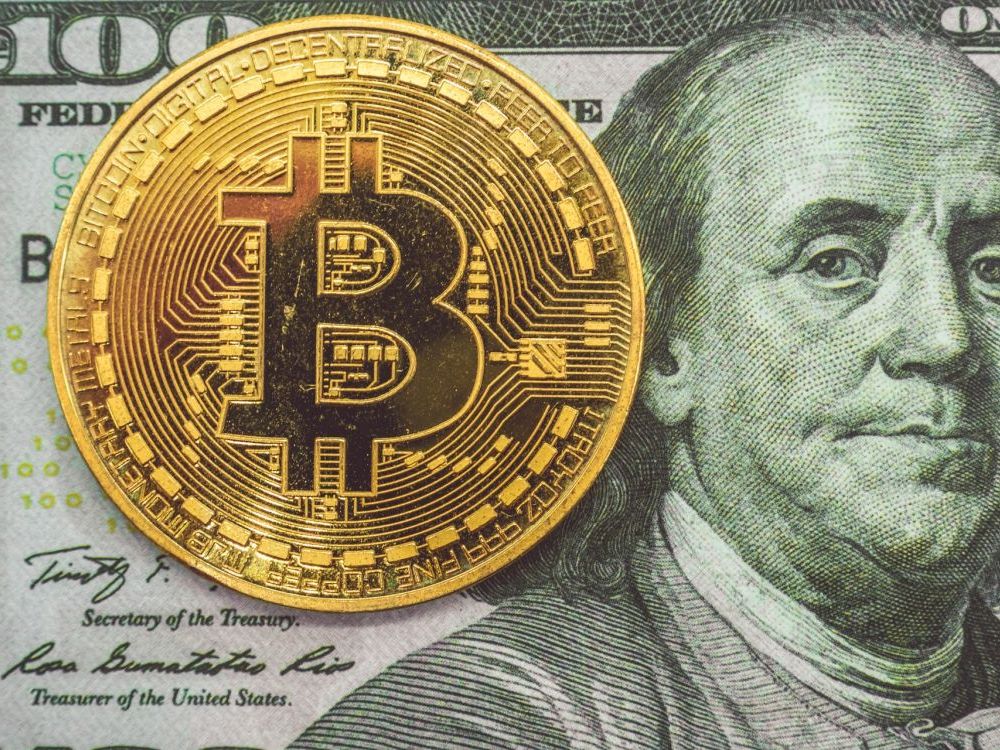We recommend the best products through our internal review process and may receive compensation if you visit partners we recommend according to our advertising disclaimer.
There has been a lot of buzz all over the internet on how Bitcoin could be the savior of global economies by helping to combat inflation. But before we can look at how Bitcoin could serve this purpose, we first need to understand the concept of inflation and the role of Bitcoin mining in combating inflation.
What Is Inflation?
Inflation is the increase of goods and services over time. It happens when a currency loses some of its value. Inflation can happen for various reasons: product demand outweighs production, which increases the cost of goods and services, production cost increases leading to higher prices for goods and services, and a government’s printing of more money. All of which leads to an increase in the cost of living.
In countries with struggling economies and high debt, the governments print additional money. This increases the amount of money in circulation, meaning that each note of legal tender is worth less or can be traded for fewer goods. Ordinarily, printing more money to take care of loans would not be an issue, but the presence of too much money in circulation causes the money to lose value and reduces purchasing power. One example of this type of inflation is the country of Zimbabwe, which has in recent years experienced hyperinflation brought on by debt, economic sanctions, and a lack of faith in the Zimbabwe government by its citizens. A panicked Zimbabwe government printed and circulated ten billion dollar notes. These ten billion dollar notes are worth less than one U.S. dollar. Zimbabwe, like many other countries, has excess money in circulation. This money is not necessarily enough to balance the cost of living, stabilize the economies, or pay off debt.

It is impossible to regulate the cost of goods and services, balance the amount of money in circulation, and stabilize the currency’s value without price controls. Today, few economies operate under an actual communist system that would control prices on most consumer goods. However, many do exert some control over public services provided by private corporations, for example, electric service.
The coronavirus has essentially released a perfect storm for inflation. Even relatively stable countries have experienced significant inflation as consumer spending has increased and businesses have reopened. These economies are now facing high inflation rates.
Cryptocurrency And Inflation So How Does Inflation Affect Cryptocurrency?
Until 1933, the U.S. economy operated on the gold standard. Every dollar printed and circulated by the federal government was backed by actual gold with a fixed price. The amount of money in circulation matched the gold available. Money had a specific value, unlike now, where money has fiat value, meaning a commodity like gold or silver does not back it.
Although cryptocurrencies occasionally experience inflation, they operate on a system much like the gold standard because their supply is automatically regulated. Bitcoin is booming because there is only so much Bitcoin in circulation at a time, and the total amount of Bitcoin in circulation will never go beyond 21 million. Every four years, the amount of new Bitcoin produced is also permanently reduced by fifty percent. Bitcoin’s value should continue to increase because there is a limited supply available for individuals or corporations to hold. This reduces the risk that Bitcoin will experience significant inflation.
Is Cryptocurrency Good For The Economy?
Bitcoin is essential for combating inflation because it is a deflationary asset at its core. Unlike fiat currencies whose values are unstable, Bitcoin can be used as an exact measure of value. Many people are now saving and investing in Bitcoin to protect themselves against inflation.
Cryptocurrencies can help combat inflation because the control of money will no longer be solely in the hands of a government. Members of the public will also have a say in decisions. The governments will no longer have the sole power to make financial decisions affecting the economy. Inflation is essentially checkmated before it even begins.

Conclusion
While most countries’ financial and economic experts plan for a small, yearly amount of inflation, extreme, unpredictable inflation is a concern and can be devastating to any economy. Individual and corporate investors are increasingly seeking out more reliable, inflation-proof investments like cryptocurrencies and Bitcoin to protect the value of their money, goods, and services. Cryptocurrencies, like Bitcoin, will play a significant role in combating inflation in the future.
Start investing in crypto here.
If you want to learn more about cryptocurrencies, download the 2021 Cryptocurrency Investment For Free: https://bit.ly/3uiJgGA
Follow us on Twitter: https://www.twitter.com/ #cryptofordummies #cryptoinvesting #bitcoinhate


